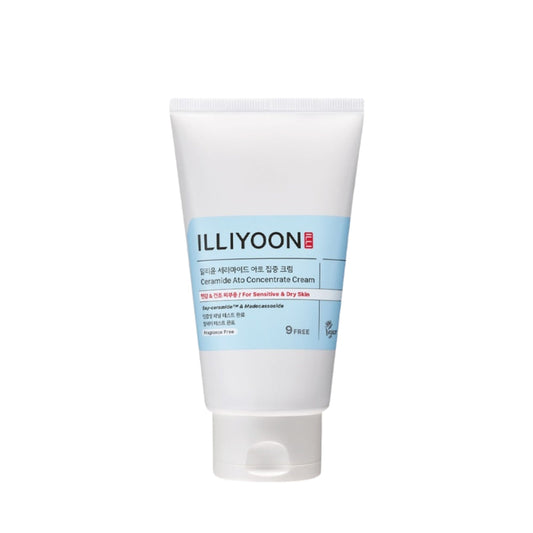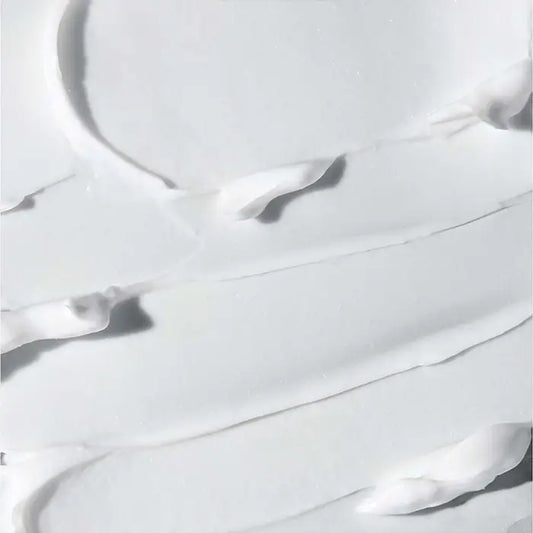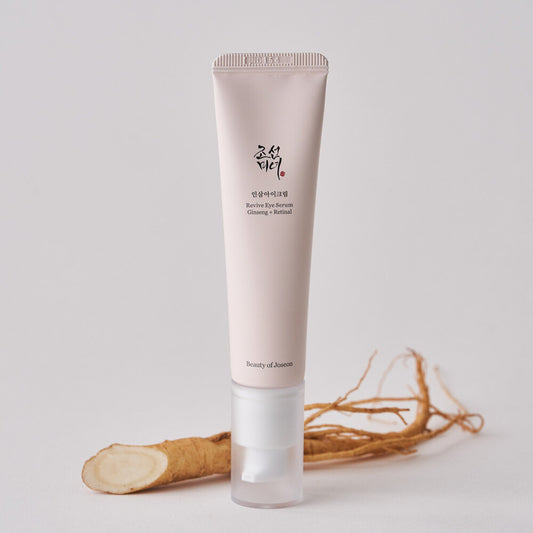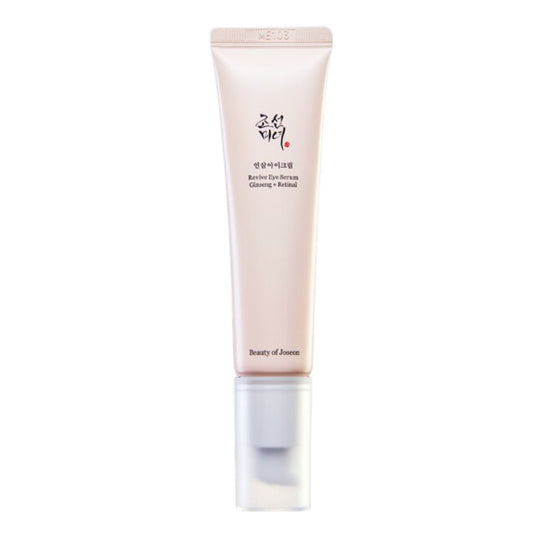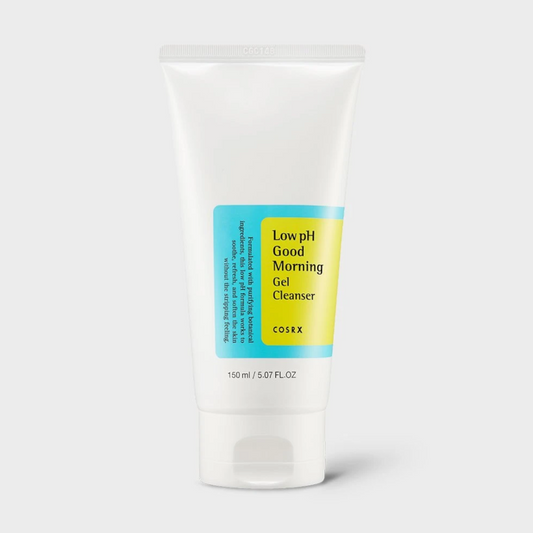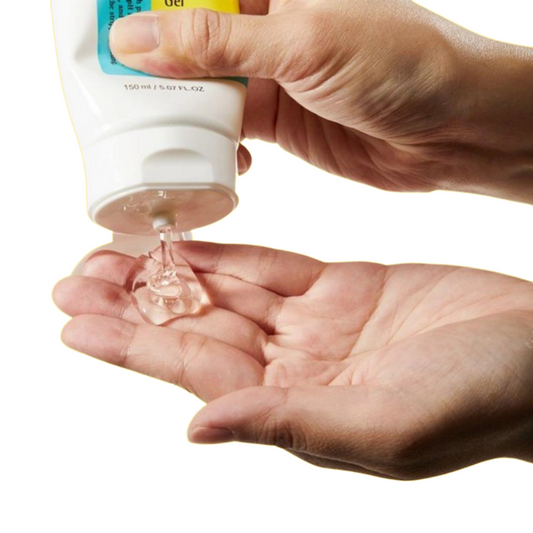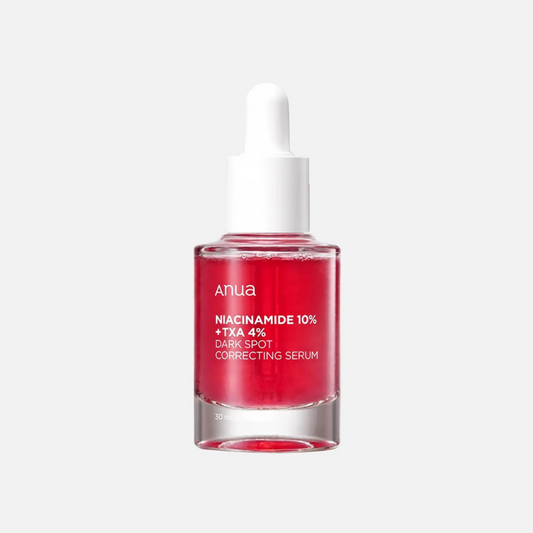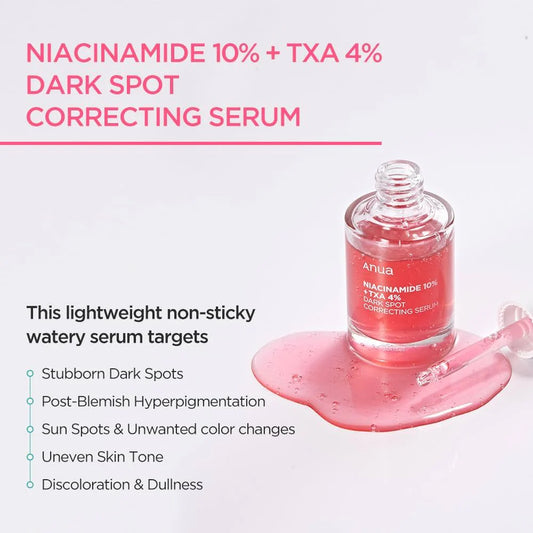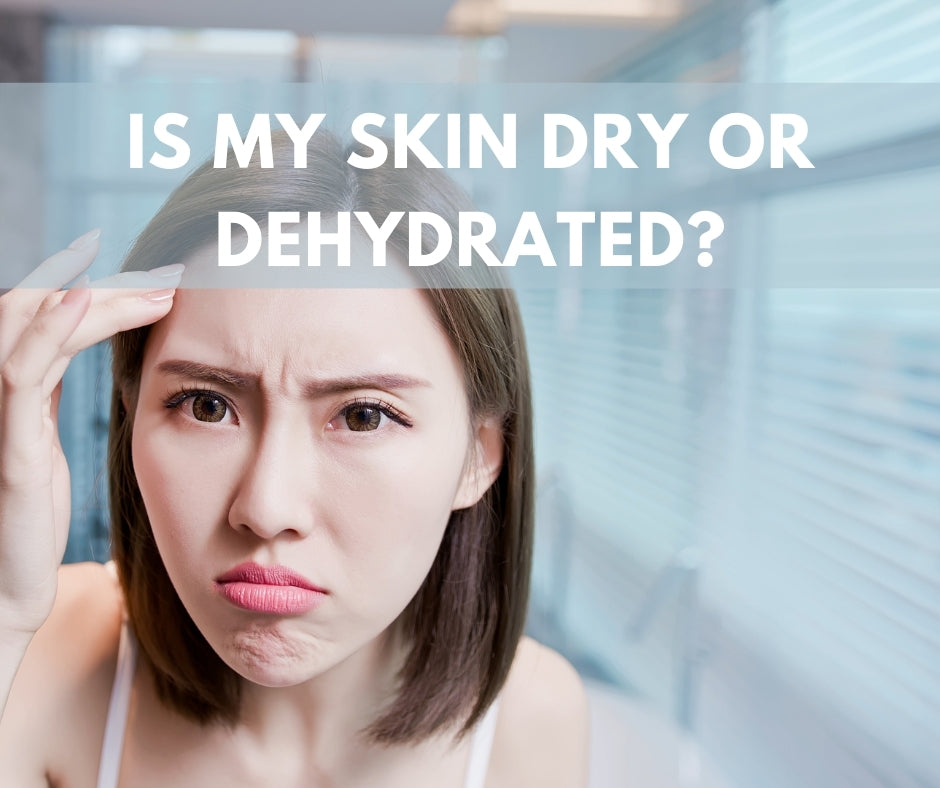
Is My Skin Dry or Dehydrated?
Share
Understanding the Crucial Difference Between Dry and Dehydrated Skin
We often use the words "dry skin" and "dehydrated skin" interchangeably, but there is a big difference. Dry skin is a skin type that lacks oil and dehydrated skin is a skin condition that lacks water. Dehydrated skin is a condition that affects all skin types. Knowing the difference can target the treatment for better skin care.
Dry Skin: A Matter of Oil Deficiency
Dry skin is a skin type, meaning it's genetically predisposed to produce less sebum (oil). This natural oil is essential for maintaining moisture and a strong skin barrier. Without it, your skin may exhibit:
- Rough texture: Think sandpaper, especially around the eyebrows, nose corners, and mouth.
- Flakiness and scaling: Visible dry patches that can be uncomfortable.
- Irritation and itchiness: A compromised barrier leads to increased sensitivity and redness.
- Example: Imagine applying foundation and seeing it cling to dry patches, or experiencing tightness after cleansing.
How to Care for Dry Skin:
- Gentle Cleansing: Avoid harsh soaps and hot water. Opt for creamy cleansers that preserve natural oils.
- Rich Moisturizers: Look for occlusive ingredients that lock in moisture. Shea butter, nut oils (like argan or jojoba), and ceramides are your allies. Explore our range of moisturisers.
- Avoid Hot Showers: Hot water strips away natural oils, exacerbating dryness. Stick to lukewarm water.
- Layering Oils: Adding a facial oil, such as rosehip or argan oil, as a final step in your routine can greatly help to seal in moisture. You can find high quality oils at mistia.shop.
Dehydrated Skin: A Thirst for Water
Dehydrated skin is a condition that can affect any skin type, even oily skin. It's characterized by a lack of water in the skin's top layer, often caused by:
- Environmental factors: Dry air, harsh weather, and indoor heating.
- Lifestyle habits: Caffeine consumption, inadequate water intake, and certain medications.
- Product usage: Harsh skincare products that strip the skin's natural moisture.
- Example: Your skin feels tight and looks dull, and fine lines appear more pronounced.
How to Recognize Dehydrated Skin:
- Tightness and Dullness: Your skin feels uncomfortable and lacks its natural glow.
- Exaggerated Wrinkles: Fine lines become more noticeable.
- The Pinch Test: Gently pinch a small area of your cheek. If the skin wrinkles and doesn't bounce back quickly, it's likely dehydrated.
- Oily and Dehydrated: If your skin is producing excess oil but still feels tight, it's likely trying to compensate for the lack of water. This can lead to breakouts.
How to Rehydrate Your Skin:
- Hydrating Serums: Look for ingredients like hyaluronic acid, glycerin, and aloe vera. ANUA PDRN Hyaluronic Acid Capsule 100 Serum can replenish moisture levels.
- Lightweight Moisturizers: Even oily skin needs hydration. Opt for gel or lotion-based moisturizers.
- Hydrating Mists: Refresh your skin throughout the day with a hydrating mist.
- Internal Hydration: Drink plenty of water!
The Ultimate Skin Solution: Hydration and Moisturization Combined
For optimal skin health, you need both hydration and moisturization:
- Hydration: Adds water to the skin using humectants like hyaluronic acid and glycerin.
- Moisturization: Creates a barrier to lock in moisture using emollients and occlusives like shea butter and oils.
Key Ingredients to Look For:
Hydrating:
- Hyaluronic acid: Draws water into the skin.
- Glycerin: A humectant that attracts and retains moisture.
- Aloe Vera: Soothes and hydrates.
- Cucumber extract: refreshing and hydrating.
Moisturizing:
- Ceramides: Strengthen the skin barrier.
- Shea butter: Rich in fatty acids and emollients.
- Nut and seed oils (argan, jojoba, rosehip): Provide essential fatty acids and lock in moisture.
Final Tip:
Remember, hydration starts from within! Drink plenty of water to support your skin's health.
At mistia.shop, we're dedicated to helping you achieve your skin goals with high-quality, effective products. Explore our range today and unlock your skin's natural radiance.
Resources:
- https://www.americanspa.com/estheticians/dehydrated-skin-vs-dry-skin-how-tell-difference
- https://www.healthline.com/health/beauty-skin-care/dry-vs-dehydrated
- https://www.allure.com/story/dry-vs-dehydrated-skin-whats-the-difference
- https://skinregimen.com/blogs/news/dry-skin-vs-dehydrated-skin
- https://theklog.co/difference-between-hydrating-and-moisturizing-products/

